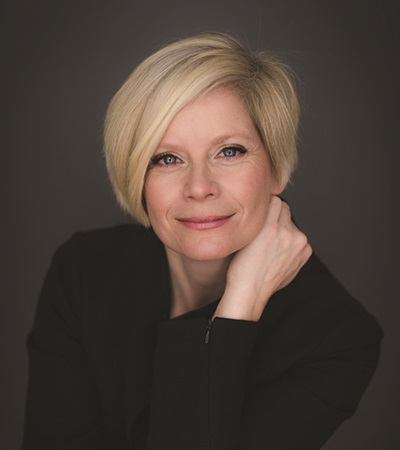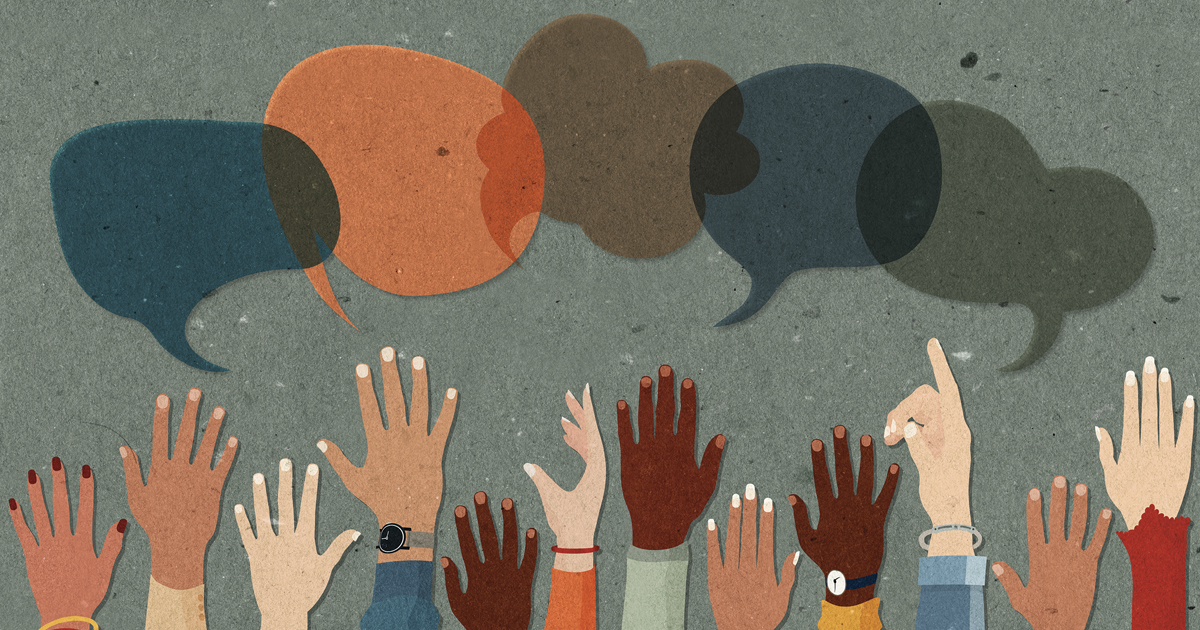In February, the Canada and Bermuda Territory hired its first-ever diversity and inclusion strategist, Dr. Ellen Melis. In this interview with Kristin Ostensen, associate editor, Melis talks about the process of developing an equity, diversity, justice and inclusion (EDJI) strategy for the territory, where the Army is making progress and why EDJI work can’t be done from ivory towers.
Tell me about your background. How did you get into EDJI work?
I have a background in health care, executive coaching, and a PhD in leadership and change. It was through my doctoral work that I became deeply involved in equity, diversity and inclusion. My PhD was on long-term care and, specifically, on culture change in long-term care with a focus on personal support workers. I was studying in the United States where there were lots of conversations around inclusion and racism—particularly, how do we empower people who feel invisible or not heard? Once you get exposed to those conversations, it’s hard not to bring that lens with you in your future thinking.
What have you been working on since you started?
My job description is, essentially, creating an EDJI strategy. I’ve divided that into four projects. One is creating an organizational strategic imperative. In a for-profit organization, we call it the business case—why are you doing this? I’m creating that over the next few months, getting voices from across the country, from the perspective of volunteers, employees, officers and congregation members. And the second project is reviewing all of our policies and procedures with an EDJI lens.
The third project is being done in partnership with the Canadian Centre for Diversity and Inclusion (CCDI), developing an EDJI strategy for our National Recycling Operations (NRO). For that project, there are several phases. The first is to get all senior leadership up to date about what we mean by EDJI—getting acquainted with our unconscious biases and our cultural competence as a leadership team. The second part is collecting data on diversity and conducting an inclusion survey. That will start in the new year. And then after that, we can do a gap analysis—looking at where we are now versus where we want to be—and develop a strategy.
The NRO piece is a 12- to 15-month project. We expect to have that strategy written up by next September. We are starting with NRO because it’s like a unit within The Salvation Army, but the plan is to learn from that project and then expand to the entire organization.
What’s the fourth project?
Certain parts of the organization fall under the Federal Contractors Program, meaning that we have to comply with the Federal Employment Equity Act. To do so, we need to collect data on gender, Indigenous Peoples, persons with disabilities and visible minorities, and make sure that our workforce is moving toward equity.
When it comes to EDJI, how do we measure success?
There are two components. One is, how diverse are you? That’s measuring what is. The more important measure for me is the inclusion aspect: How well do people feel they belong? Do they feel they have a voice? Do they feel they have opportunities? And then looking at that gap analysis.
Sometimes there’s a disconnect between what you think you’re doing and the actual practice. We need data to point out what needs to be improved and then we need tools and ways of thinking that help us shift. It’s a cultural change, on an organizational level. That’s the hard work. It’s not fast. This is a years-long process.
What does that “hard work” look like in practice?
Inclusion is all about lived experience. You cannot judge how included other people feel because they see the world through their own lens. So sometimes the hard work is taking someone’s lived experience as their truth even though you don’t understand.

A big piece is self-awareness. When I ask, Do you feel included? it means that I need to be aware that my voice may be heard differently by different people. If I grow up in a certain way of thinking and speaking, everyone who’s like me may not be hurt by it, but a person with a lived experience that’s different may hear that same sentence and it will land differently and they will not feel included.
So how do we allow others to share their lived experience? A lot of it is storytelling, keeping in mind that with any EDJI work, it’s not up to the minority group to fix it. It’s all of our work. We need to do it with people, but it’s not their job.
If we have more diverse teams, we’re going to hear voices and ideas that are not the same as ours, and that means we have to listen differently. We need to have better conversations and ask better questions. Sometimes we’ll get it right and sometimes we’ll get it wrong as we learn to understand what others need.
What are some areas where we are making progress in EDJI?
One is gender equity for officers. The Gender Equity Task Force is set to make recommendations this fall, and there have already been changes made to the Army’s maternity leave policy for officers. Another area is elevating Indigenous voices as we build on the work of the territory’s Indigenous ministries consultants—Major Shari Russell and Captain Crystal Porter—and the Truth and Reconciliation Committee.
Which areas need the most work?
We have an external perception of the organization within the LGBTQ2S+ community that is not necessarily positive. I think there is a big opportunity to show that the Army is not homophobic and that we are inclusive. We have LGBTQ2S+ employees and we serve everyone without discrimination. We have statements that say we are inclusive, but we don’t share the stories of how we are inclusive—we don’t talk about it at all—so stories about The Salvation Army not being welcoming live on. And so part of our work ahead is to make good partnerships with the LGBTQ2S+ community and understand their needs so that we can create an organization where they feel they belong.
I believe we should have good dialogue on what inclusion means to different communities. Inclusion to the LGBTQ2S+ community at large might be articulated differently from the faith-based LGBTQ2S+ community, which might, in turn, be different than that of the congregation. How do we listen to different perspectives and understand them?
By nature of being an army, there’s a certain expectation of conformity. How do we honour the army aspect of our identity, while also cultivating diversity?
The Salvation Army comes from an English perspective, which means doing good in action. Sometimes it may feel that this is done to people rather than with people. And when you have an army structure, there’s a hierarchy, and that means there’s a power difference. We need to be aware of that and we need to show up with even more grace and better questions than an organization that may not have that hierarchical, “action-oriented” background. I think many parts of the organization are doing that well, asking those who receive our services, What do you need? And how do you need it? It’s giving them choice and agency versus us saying, “This is what you should do.”
As we’re having this conversation, I’m aware that we are two white people with various privileges, talking about diversity and inclusion. How do you take that into account in your EDJI work? How can others in our organization do that as well?
I saw a great quote recently that said, those of us in senior positions have the most power to change things and know the least about how to. So it comes back to, How do we listen deeply and include those who are different? You need to spend time with others to create understanding. It can’t be done from ivory towers.
One of the things I want to do is create EDJI resource groups across the organization for those who identify as different—for example, people who are Black. The resource group would be a safe space for them to share and it’s not a white person leading it. When I worked with personal support workers, it was the lunchroom where people felt safe to share what they needed. Often, it’s not the boardroom. There will be conversations where I cannot be in the room, but I can certainly partner with people who are in the room and can transparently listen for concerns.
For organizations that are just starting this work, that might feel risky, so it’s our job to create safety for people. Initially, you may see only a few brave souls speak. But hopefully, the conversations we have today will be different from the conversations we can have a year from now because we’ve made more safety for people to share what’s important to them.
As part of the Army’s partnership with the CCDI, all Salvation Army employees have access to CCDI webinars and community of practice events. To learn more, visit ccdi.ca/event-calendar/?category=Webinars and ccdi.ca/community-of-practice-events/.
Illustration: Melita/stock.Adobe.com
This story is from:










Until LGBTQ+ persons can be soldiers and officers and be married in the Salvation Army, it is not inclusive. It's actually hypocritical to say you are welcome in our shelters, and on our charity side, but sorry, you cant be a member of our church.